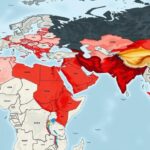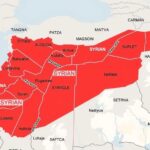The Rising Threat of Misinformation in Post-Assad Syria
The rise of misinformation in Syria has increased since the fall of the Assad regime, with various factions using disinformation to further their agendas. Although fears of persecution by new ruling powers exist, actual incidents remain limited, while false reports spread widely. International interference adds complexity, with countries like Russia and Iran influencing narratives to stabilize their positions. The implications of this disinformation could disturb the already fragile peace in Syria.
Misinformation regarding Syria has surged since the toppling of the Assad regime, ranging from absurd claims to serious allegations. Zouhir Al-Shimale of Verify-Sy noted that entrenched grievances among factions now feed disinformation campaigns aimed at undermining opponents while promoting various agendas. Following a December offensive that ousted the Assad regime, public concern grew regarding the behavior of the new ruling group, Hayat Tahrir al-Sham (HTS), especially towards those who supported the previous regime.
Despite initial fears, confirmed instances of violence or religious persecution remain low, though misleading reports abound online. Fact-checkers from Misbar have debunked multiple false claims, such as the misattributed removal of Christmas trees by the new government in Syria, clarifying that it occurred in Iraq in 2023. The sources of this misinformation are diverse, often tied to the complex interests of various actors in the Syrian conflict.
Syrians may circulate false information unintentionally, often due to lacking proper verification mechanisms, or intentionally to pursue personal agendas. In the wake of the Assad regime’s collapse, an information vacuum has emerged, leaving many susceptible to manipulation by factions seeking to promote their narratives. Al-Shimale highlighted the emotional vulnerability during times of uncertainty, as misinformation proliferates in such contexts.
International players such as Russia and Iran continue to engage in disinformation tactics aimed at framing the narrative around Syria’s developments. There is evidence of recent campaigns aimed at inciting fear among the Alawite community through fabricated social media accounts that appear to monitor human rights while actually fostering unrest. This convergence of interests complicates the landscape of Syrian politics and perception.
The dissemination of disinformation has tangible effects on the ground, often leading to protests and heightened tensions within communities. For instance, misleading videos can incite anger among certain groups, potentially destabilizing already fragile conditions. The impact of misinformation extends beyond local implications, potentially influencing international perceptions of Syria’s capacity for stability post-Assad, thus complicating external support for the nation.
The topic of fake news and misinformation in Syria is highly relevant given the complex political landscape following the overthrow of the Assad regime. After years of civil war, various factions are leveraging disinformation to promote their interests and undermine rivals, exacerbating tensions among different groups. Even as the transitional government finds its footing, misinformation has the potential to ignite conflict and shape international perceptions, making it crucial to address the spread of false narratives in this fragile context.
In conclusion, the surge in misinformation after the Assad regime’s ousting poses significant risks for Syria’s stability. The emotional and societal vulnerabilities resulting from years of conflict have made the populace particularly susceptible to disinformation tactics, perpetuated both locally and by international actors. The repercussions of this misinformation can lead to increased unrest, altering perceptions and potentially undermining both local and international support mechanisms for the nation’s recovery. Thus, addressing these issues is imperative to prevent further conflict and promote genuine stability in Syria.
Original Source: www.dw.com








Post Comment